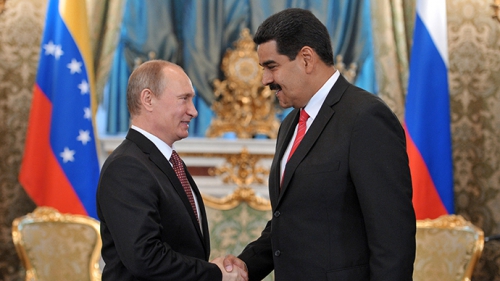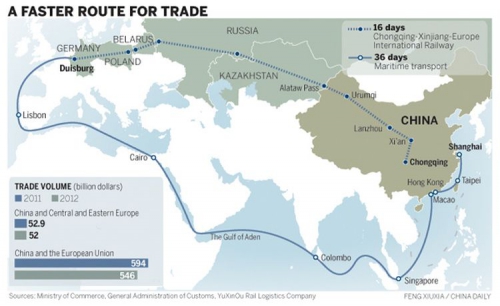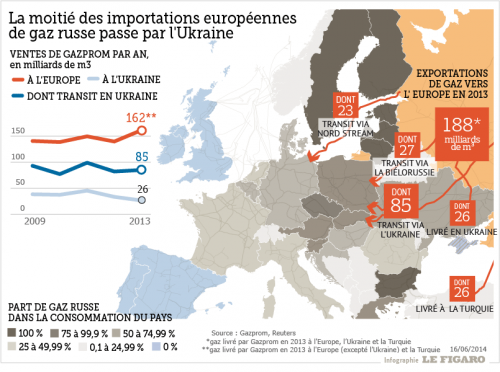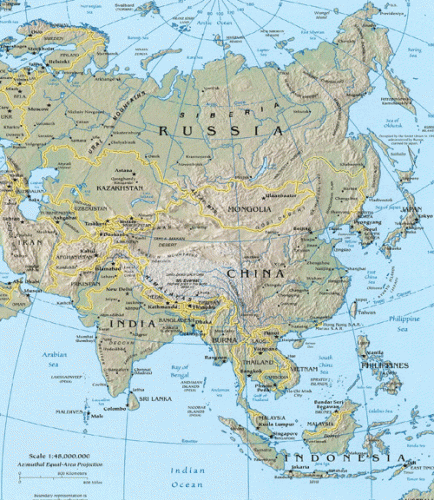Por Leonid Savin
Ex: http://www.elespiadigital.com
El comienzo del siglo XXI no ha sido tan color de rosa como fue descrito por los futurólogos y planificado por los políticos: una crisis financiera mundial, los problemas dentro de la zona euro, el “pantano” para las tropas estadounidenses en Irak y Afganistán, los conflictos armados en Europa Central, Norte de África y el Medio Oriente, una serie de revoluciones de color en el espacio post-soviético, y disturbios en las capitales de Europa Occidental. Se diría que con la tecnología moderna, la herencia histórica y el acuerdo convencional sobre los derechos humanos, Europa ya ha definido su futuro y, si no está siguiendo lo planificado, por lo menos está manteniendo las políticas regulatorias en el ámbito de su competencia. Sin embargo, los desarrollos actuales indican que todo resultó ser más complicado. El mundo ha entrado en una zona de turbulencia geopolítica, con procesos en varios niveles, nuevos retos y respuestas asimétricas.
Además de la vieja dicotomía entre conservadores y progresistas, surgen en Europa nuevas tendencias políticas que intentan repensar su europeidad y priorizar el futuro desarrollo y la supervivencia. Variantes en relación al tema del futuro de la OTAN y la planificación de la defensa conjunta con los EEUU, fluyen desde cumbres marginales y anti-globalización como desde un fondo político intelectual, lo que demuestra la inutilidad de ejecutar la política de antiguos vectores.
La situación es tal que el debate contemporáneo en torno al futuro de Europa, el destino de Rusia y de otros países del continente, no puede considerarse por separado. De la investigación etimológica al replanteamiento pragmático del viejo Lebensraum (incluyendo la dependencia de recursos) – de una forma u otra, la superpoblada orilla de Eurasia desde Gibraltar hasta el mar de Barents está volviendo su mirada hacia el Este.
En cierta época, los conceptos de “Europa” y “Asia” se limitaron al mundo helenístico y a los países vecinos, dentro de un paradigma que asignó significados particulares. La expansión del Imperio Romano, la era de la gran migración y la difusión del cristianismo, cambiaron la estructura política de la parte occidental del continente euroasiático. Mientras esta región se sumergió en un frenesí feudal, un nuevo imperio se formó en las fronteras orientales. La Horda de Genghis Khan logró en un tiempo extraordinariamente corto unir por la fuerza kanatos, reinos y principados, extendiéndose a través de miles de kilómetros, mostrando un nuevo modelo de Estado, de diplomacia y de tácticas militares. La importancia histórica del proyecto mongol es simplemente asombrosa. Nadie más, ni antes ni después, fue capaz de crear tal vasto Imperio. Mientras tanto, hay claros marcadores geopolíticos de este fenómeno. Historiadores europeos modernos han señalado que la Rus había frustrado la oleada de nómadas de Asia hacia Occidente, salvando así a Europa de una inminente desaparición. Interpretaciones completamente diferentes se expresaron en relación con el destino de Rusia. Aunque la escuela soviética de pensamiento insistió en la existencia del yugo mongol-tártaro, la escuela histórico-filosófica euroasianista refuta tales supuestos, con el apoyo de elementos de hecho. De acuerdo con la teoría del cambio de los imperios, la Rus tomó la batuta de las hordas ya fragmentadas, en gran medida tomando prestados sus mecanismos de construcción del Estado, necesario para una mayor expansión.
Aunque anteriormente hubiera “campañas contra los cismáticos” y otros obstáculos (como en todas partes), la primera confrontación total de Oriente y Occidente comenzó con la “era de Gutenberg” [1]. La imprenta, originalmente concebida con el fin de ayudar a difundir la Palabra de Dios, no sólo dio lugar a un efecto contrario (porque la difusión de la Biblia socavó la autoridad de la Iglesia Católica), sino también a la aparición de las primeras instituciones de la guerra de la información. Mientras que las primeras embajadas de Europa occidental viajaron para comerciar con Moscú, la población local fue sometida a un adoctrinamiento, recurriendo a las metáforas del Antiguo testamento y creando una imagen poco favorecedora de los gobernantes de Rusia y de su pueblo.
Sin embargo, la primera ola de globalización que termina con el descubrimiento de América, apareció como el comienzo de una nueva era global. Al mismo tiempo, Europa, desgarrada por guerras y contradicciones, trasladó parte de su teatro de operaciones de combate a los territorios de los nuevos espacios abiertos, inaugurando así el comienzo de nuevos procesos civilizatorios.
Todavía había muchos episodios de comprensión mutua entre Rusia y Europa en una serie de cuestiones, sin embargo, con el inicio del siglo XX, la modernidad alcanzó todo su potencial, y tres ideologías principales saltaron a la arena: el marxismo con el postulado de la la lucha de clases; el corporativismo estatal con una perspectiva nacional, que se convirtió en el nacionalsocialismo y el fascismo; y el liberalismo. Las tres tendencias ideológicas no eran ajenas a las cuestiones territoriales, nacionales y de recursos, pero parece que la escuela geopolítica anglosajona deliberadamente ha demonizado a Rusia. Ellos hicieron de Rusia, conceptualmente, no sólo un Heartland, sino también una fuente de inestabilidad, de donde se originó el “tierra de vándalos” a imagen de los hunos, los turcos y los mongoles, que atacaron los alrededores del mundo romano [2]. A estas alturas, con la memoria histórica ya debilitada, después del colapso del Imperio Austro-Húngaro pocos estuvieron interesados en la historia del pueblo húngaro, que venía desde más allá de los Urales, y otros temas fueron pasados por alto. ¿Quién recuerda ahora a los ávaros, que una vez penetraron en el territorio de la actual Alemania y, de hecho, crearon Baviera (y ahora el tipo antropológico de la población de esta tierra federal es marcadamente diferente del de los sajones o de Westfalia), o de los eslavos, presidiendo el área del actual Berlín? ¿Y recuerdan en los círculos políticos polacos las ideas de un destacado dramaturgo y escritor, Stanisław Witkiewicz, quien en la década de 1930 expresó en su metáfora artística la ansiedad asociada a la amenaza de la migración desde China? [3]
Aunque estas observaciones pueden parecer insignificantes, son todos eslabones de una cultura estratégica de uno u otro estado con su pueblo, de alguna manera realizados en la geopolítica popular.
Turquificar Alemania, africanizar Francia, indianizar el Reino Unido, magrebizar Italia y España, y un número aún no determinado de chinos, vietnamitas y otras diásporas asiáticas en cada país de la UE, en la dinámica geopolítica, puede conducir a resultados muy impredecibles [4]. Mas la rápida islamización de los países europeos en el contexto de un declive demográfico de la población nativa. El estado de ánimo actual en algunos países de la UE, en particular entre los nuevos miembros, muestra claramente que a la gente no le gustan los proyectos de etno-globalización en su tierra natal, al menos en su forma presente [5]. Característicamente, el principal vector de la migración actual pasa por el eje Norte-Sur, no por el eje Este-Oeste, donde la frontera sanitaria artificial todavía juega el papel de parachoques disuasorio.
La guerra fría no sólo condujo a la división en dos bandos, sino también a la aparición de una nueva terminología. En Occidente hay una cristalización final de la filosofía política, conocida como atlantismo. Un político británico, John Williams, amplía este término calificándolo como teología atlantista [6]. Afirma que, como cualquier teología, el atlantismo se basa en el mito de que, en última instancia, los intereses geopolíticos y geoestratégicos de Europa y Estados Unidos son inseparables. Al mismo tiempo, Williams cree que las relaciones entre los EEUU, Europa y Rusia durante la Guerra Fría son también otro mito, que se tradujo en una crisis de identidad propia.
La sustitución por el neo-atlantismo (el neologismo nació en Italia en la década de 1950) [7] como definición de las nuevas relaciones entre los miembros de la comunidad atlántica, tampoco duró mucho y está perdiendo rápidamente su sustancia interna. Así como con las instituciones de la democracia, resulta obvio que va a declinar. En este sentido, cabe señalar que el término “déficit democrático” ha surgido en Europa en 1977 para definir la incapacidad de los países miembros de la UE para abordar las cuestiones relacionadas con las necesidades de los ciudadanos europeos [8].
En este contexto, viendo a los Estados Unidos como su sucesor geopolítico, la Europa unida debe reconocer que no estaba en condiciones de hacer frente al programa de “Melting Pot“, y digerir todos los inmigrantes de sus antiguas colonias, junto con la nueva fuerza laboral de la migración continua.
El cuadro de la Europa pos-Guerra Fría fue transformado por la admisión de nuevos miembros en la UE. El factor mar Báltico-Negro fue añadido al factor dominante Atlántico-Mediterráneo, y los países de esta región se vieron obligados a enfrentarse a una serie de cuestiones: la adaptación del sistema jurídico, las instituciones políticas y civiles, la economía; tratando de preservar su memoria y sus tradiciones históricas nacionales al mismo tiempo. Junto con esta expansión geográfica fue posible la aparición de un discurso sobre el nuevo eje geopolítico, en cierta medida compitiendo con el viejo eje [9]. La cuestión de la centralidad para definir la nueva Europa (el término de Friedrich Naumann “Middle Europa“) también siguió siendo reinterpretada. Se propusieron definiciones tales como “MidiEurope“, “Dimidial Europa” y “Viscalian Europa“, que se basan en los términos latinos correspondientes [10]. Éstas definiciones se superponen con los conceptos existentes de Euroregiones, basados en el modelo de cuenca (el área de las cuencas del Mosa-Rin, las tierras bajas del Danubio). Una escuela geopolítica alemana sobre Eurafrica sonó de nuevo, sin embargo, bajo la influencia de los intereses franceses – creando así el fantasma de la Unión Mediterránea, que no pudo llegar a buen puerto debido al bloqueo alemán a la posibilidad de este proyecto. Del mismo modo, en las nuevas versiones posmodernas y tecno-políticas (con la energía y el componente de la comunicación) fue revivido el proyecto de Mezhmorye (“entre los mares” Báltico y Negro), del geógrafo y cartógrafo polaco Eugeniusz Romer, el prototipo que a su vez sirvió para la idea de Jagiellonian (Gran Lituania). Junto con los atractivos respecto a la comunicación (la adaptación de la ruta “desde los varegos a los griegos” en un nuevo guión), este modelo geopolítico tuvo un componente étnico-nacional, se asumió que la identidad cultural báltico-eslava serviría como una base adicional para la ejecución de este proyecto. Pero las preguntas acerca de la pertenencia a un tipo de civilización [11], a veces llamada el mundo occidental-cristiano o el super-ethnos europeo-occidental, condujo al descubrimiento de algunas contradicciones profundamente arraigadas en función de factores históricos o etno-políticos, que también tienen un componente pragmático que se expresa en la estructura de las fronteras y los puntos de vista sobre la asignación de los recursos. Frente la presión de los antiguos miembros de la UE para la homogeneización del espacio económico, que se refleja sobre todo en el hecho de que las empresas transnacionales han tenido acceso a los recursos nacionales, los Estados del eje mar Báltico-Negro estaban interesados en medidas proteccionistas contra un efecto tan unilateral de globalización.

Podemos decir que los intentos iniciales para establecer una Unión de cooperación regional, junto con los componentes históricos, hasta cierto punto han servido como base para la remodelación de este proyecto en un plano estratégico diferente, más amplio, que afecta a los intereses de las grandes potencias – continental (Euroasiática) y atlantista (mundialista). No es casualidad que cierto número de investigadores comenzaran a comparar el modelo del eje mar Báltico-Negro con una frontera sanitaria, como la que se formó después del Tratado de Versalles al final de la Primera Guerra Mundial. Un proyecto geopolítico, indirectamente asociado con tales ideas, llamado GUUAM (Georgia, Ucrania, Uzbekistán, Azerbaiyán y Moldavia), que no tuvo ningún verdadero desarrollo y fue concebido como un proyecto de los países occidentales (incluyendo los EEUU) para crear una barrera artificial entre la Rusia moderna y la UE.
Podemos recordar otra serie de proyectos, ni siquiera realizados, como Chimerica o Сhindia, pero a juzgar por la posición de la futura integración de Rusia y Europa, que en teoría es el proyecto más grande e importante que podría cambiar el orden mundial, es necesario hacer algunas observaciones preliminares. La alianza llamada Eurosiberia ya era considerada como una opción de futuro. La necesidad de convergencia fue destacada por Jean Thiriart, quien soñaba con un imperio desde Dublín hasta Vladivostok (no obstante, prediciendo la caída de la URSS).
Los opositores intransigentes a la amistad y la cooperación con Rusia apuntan a los precedentes históricos y a la imprevisibilidad del gobierno ruso. En realidad, Europa vió muchos más conflictos históricos. Incluso después de los Acuerdos de Helsinki, una guerra civil estalló en el corazón mismo de Europa – la de Yugoslavia, que tuvo consecuencias de largo alcance, incluyendo el reconocimiento de Kosovo. El movimiento moderado de los secesionistas y el separatismo radical en España, el Reino Unido y Bélgica continúa hasta nuestros días. Y quien vigile de cerca la crónica de los acontecimientos internacionales, encontrará fácilmente que los EEUU es el más impredecible: la promesa de no ampliar la OTAN hacia el Este en la década de 1990 y de permanecer en Kirguistán sólo durante dos años en la base de Manas (y en muchas otras, incluso en los países de la UE), fueron promesas vacías. Y si en este tipo de cuestiones de principio no existe ninguna garantía de que Washington no vaya a engañar de nuevo, ¿cómo es posible además trabajar con un socio tan fiable?
Ahora estamos en el siguiente punto de bifurcación, cuando existe una oportunidad de hacer un breve alto en el camino y repensar los procesos asociados a los patrimonios territoriales, los estados nacionales, los agravios históricos, etc., para crear una nueva estrategia común, adecuada para todos los actores de Eurasia. Por supuesto, el término puede tener varios significados semánticos. Por ejemplo, la India, China y el sudeste asiático son aglomeraciones demasiado específicas incluso para las antiguas repúblicas soviéticas. Y los primeros euroasianistas imaginaron Eurasia como Rusia, y no como Europa más Asia, considerándolo un mundo único. Sin embargo, Eduard Suess, en su obra fundamental “The Face of the Earth” [12], utiliza el concepto de Eurasia apuntando la arbitrariedad de los límites entre Europa y Asia, y que las fronteras no son sólo una herramienta de separación, sino también un fenómeno social complejo que une a las naciones y a los pueblos.
Quizás muchos señalarán un tipo muy diferente de conciencia de los pueblos y países desde Chukotka hasta el Atlántico, pero ¿sobre qué base los pueblos de Europa construirán juntos una existencia colectiva si ya hay tantas contradicciones en la UE? En nuestra opinión, para crear una plataforma geopolítica compartida que pueda satisfacer a todos, o al menos a la mayoría de las fuerzas, los desacreditados conceptos de democracia y liberalismo, y el populismo social de izquierda de partidos y líderes particulares, que son una nueva versión de la consigna de los francmasones – “libertad, igualdad, fraternidad” -, son poco adecuados. ¿Qué nueva idea debería unir y satisfacer a todos los pueblos de Eurasia?
El fundador del movimiento eurasiático, el geógrafo Petr Savitsky, propuso un modelo de ideocracia que se caracteriza por una visión del mundo compartida, y por la buena voluntad de las élites gobernantes en servir a la única idea rectora que representa “el beneficio del colectivo de los pueblos que habitan este particular mundo autárquico”[13]. Esta es una muy buena definición, y si este mundo se interpreta como el espacio del continente euroasiático, hay muchos puntos en común y perspectivas para una realización creativa.
Además, el común destino continental es el elemento vinculante que apunta las condiciones geopolíticas comunes. No es coincidencia que Hitler tratara de llegar hasta los Urales, lo cual habla acerca de la integridad de la plataforma del Este europeo, no obstante, incluso los Urales no son ya una barrera, y el extremo Oriente está más “europeizado” que algunas ciudades en las inmediaciones de Moscú. Las comunicaciones modernas y los centros de transporte crearon un mosaico geopolítico polifacético de un mismo cuadro. Y si antes del siglo XX todavía era posible hablar de un “obstáculo eurasiático”, en referencia a la extensión de las tierras del Imperio Ruso, a las eternamente congeladas latitudes del norte, y a la carencia de acceso a los mares cálidos, separados por Persia y la India, ahora todo eso es facilitado por los proyectos de infraestructura de transportes, las nuevas tecnologías y la comprensión de los principios de autarquía económica propuestos por Friedrich List.
Hace mucho tiempo llegó un momento en el que, a partir de pequeños grupos construidos sobre el principio de la autosuficiencia, fue necesario trasladarse a las zonas de “topogénesis” (o el lugar de desarrollo, el término propuesto por Peter Savitsky para explicar el conjunto de factores geográficos, étnicos, económicos, históricos y otros, que representan un todo) [14], y Grandes Espacios de Carl Schmitt. Dado el sistema político internacional contemporáneo de múlti-capas y multi-nivel, tal proyecto es factible.
Si bien no vamos a hablar sobre el futuro de la política migratoria (aunque Rusia tiene una gran cantidad de territorios no desarrollados que, como antes, pueden ser poblados por extranjeros – Catalina la Grande dio tierra a los alemanes; los kurdos, los serbios y otros pueblos encontraron refugio en Rusia), este delicado asunto debería ser resuelto con cuidado y gradualmente.
Aún así, hay que sacar algunas conclusiones relacionadas con la posibilidad de crear una configuración supranacional unificada.
La UE debería reconocer su dependencia constante de los recursos energéticos rusos. El “North Stream” ya había conectado Rusia con Alemania. El “South Stream” finalmente cerrará la dirección del Mar Negro. Todos los pragmatistas entienden que la idea de “Nabucco” es desequilibrada y motivada políticamente. Las tecnologías verdes resuelven el problema sólo parcialmente. Además de la energía, hay otros recursos naturales, incluyendo el agua, los minerales, los bosques, etc. Rusia ocupa una sexta parte de la tierra y posee el máximo inventario de estos recursos. Por supuesto, con las políticas posmodernas actuales y los procesos de globalización, uno puede ser dueño de la tierra de manera extraterritorial, pero en el caso de Rusia, al menos en el corto plazo, eso no es posible. Sólo las inversiones mutuas y los proyectos de integración (comenzando con la cancelación del régimen de visados), pueden abrir el acceso real a la gestión de estos recursos en nombre de los intereses comunes.
Es una cuestión de voluntad política. Sólo los fuertes pueden crear una formación tan gigantesca. Hagamos que esto sea una voluntad colectiva, aunque debemos actuar con decisión y audacia. Llámelo una autodeterminación geopolítica de todos los participantes del proceso.
Es posible que, junto con los procesos globales, nuevos horizontes conducirán a la creación de una nueva clase (relativamente hablando), y darán lugar a la superación de la dicotomía derecha-izquierda en algunos sistemas políticos. En el período de entreguerras en Europa hubo intentos de poner en práctica iniciativas interesantes bautizadas como “la tercera vía”. Es posible que en el proceso de diseño político una nueva teoría política sea creada [15].
¿Cómo continuará la discusión política, social, económica, de defensa y sobre muchos otros temas? Sólo podemos decir que es necesario un “multiálogo” [16] como herramienta para la comunicación interestatal y para la comunicación internacional, en el proceso de producción de las normas y las instituciones necesarias.
A pesar del proceso de creación de la Unión Euroasiática, como Vladimir Putin dijo en octubre de 2011 hablando de la participación de la UE en la construcción de Eurasia, tal proyecto está aún, al margen del discurso de grupos intelectuales independientes, sólo en el esfera de la imaginación. Pero, como escribió un famoso teórico estadounidense del comunitarismo, Michael Walzer, incluso un estado es invisible, y para que aparezca, debe ser imaginado, debe dársele un carácter, y luego, personificarlo y hacerlo visible. La imaginación, según Albert Einstein, es mejor que el conocimiento, por lo tanto, la configuración emergente de Eurasia es el retorno de un sueño para todos los pueblos del continente, que serán capaces de poner en práctica gradualmente en la realidad. Y el conocimiento existente (incluyendo la experiencia negativa), y la tecnología deberían ser instrumentos para esta Gran Empresa Geopolítica.
Notas:
[1] Marshall McLuhan. The Gutenberg Galaxy. The Making of Typographic Man. University of Toronto Press, 1962.
[2] J. Mackinder Halford. The Geographical Pivot of History, Geographical Journal, London, 1904.
[3] Stanislaw Witkiewicz. Nienasycenie. Powiesc, t. 1-2, Warsz., 1957.
[4] La cuestión del etnocentrismo en un estado nacional, es decir, la división entre “nosotros” y “ellos”, se planteaba a menudo en el discurso ideológico, reflejándose, por ejemplo, en una “caza de brujas”, y en una política nacional. Sin embargo, incluso en una sociedad homogénea en términos culturales y étnicos, siempre habrá algunos mecanismos invisibles que empujan a la violencia mutua. El filósofo francés René Girard propone apartarse del modelo de “etnocentrismo” y buscar la causa dentro de la sociedad, que durante la historia del mundo siempre ha necesitado un chivo expiatorio. Para obtener más información, consulte René Girard. La violencia et le Sacre. Grasset y Fasquelle, 1972.
[5] La prueba de esto es el fracaso del proyecto de la multiculturalidad, lo que fue reconocido por Angela Merkel y Nicolas Sarkozy.
[6] John Williams, Atlanticism: The Achilles’ Heel of European Security, Self-Identity and Collective Will. http://www.redpepper.org.uk/atlanticism/
[7] Pietro Pirani. “The Way We Were”: Continuity and Change in Italian Political culture. 5, 2008. http://www.psa.ac.uk/journals/pdf/5/2008/Pirani.pdf
[8] Laffen, B. “Democracy and the European Union’, in Cram, L., Dinan, D. and Nugent, N. (eds.)
-Developments in the European Union, London: Macmillan Press Ltd., 1999, p. 334
[9] Leonid Savin. And the geopolitics of regional risks, Geopolitics No. 10
[10] Drynochkin A.V. Eastern Europe as an element of system of global markets. M: Olita, 2004. p. 11.
[11] Hay que señalar que no existe una clara interpretación del término “civilización”.
[12] Suess, Eduard. Das Antlitz der Erde. Wien, 1885.
[13] N.S. Trubetskoy. Acerca de la idea de un estado ideocrático, Eurasian chronicle. Issue XI. Paris, 1935. pp. 29-37.
[14] Peter Savitsky. The Continent Of Eurasia. – M.: Agraffe, 1997.
[15] Alain de Benoist propone llamar a una futura teoría que trascienda el marco del marxismo, el liberalismo y el fascismo, el Nuevo Nomos de la Tierra, y el profesor Alexander Dugin llama a tal ideología la Cuarta Teoría Política.
[16] Duke R. Gaming: The Future Language. N. Y.: Sage Publications, 1974.
(Traducción Página Transversal)





 del.icio.us
del.icio.us
 Digg
Digg



 Otherwise, his war was a kind of black hole in family life. But for boys like me, that mattered less than you might expect for a simple reason: we already knew what our fathers had experienced at war. We had seen it at the movies, often with those fathers sitting silently beside us. We had seen John Wayne
Otherwise, his war was a kind of black hole in family life. But for boys like me, that mattered less than you might expect for a simple reason: we already knew what our fathers had experienced at war. We had seen it at the movies, often with those fathers sitting silently beside us. We had seen John Wayne 



 There are indeed exceptions to war porn, but don’t fool yourself, size matters. How many people have seen American Sniper, The Hurt Locker, or Zero Dark Thirty? By comparison, how many saw the anti-war Iraq War film
There are indeed exceptions to war porn, but don’t fool yourself, size matters. How many people have seen American Sniper, The Hurt Locker, or Zero Dark Thirty? By comparison, how many saw the anti-war Iraq War film 





 Talk of an oil glut and a potential
Talk of an oil glut and a potential 
















 Vor
Vor  Doch Dutschke argumentiert dagegen unverblühmt national. Er weiß klug zu differenzieren: „Anlässlich des ungarischen Volksaufstandes von
Doch Dutschke argumentiert dagegen unverblühmt national. Er weiß klug zu differenzieren: „Anlässlich des ungarischen Volksaufstandes von  Sein langjähriger Weggefährte und Freund Bernd Rabehl äußerte überdies schon
Sein langjähriger Weggefährte und Freund Bernd Rabehl äußerte überdies schon  Bei allen nationalen Bekenntnissen Rudi Dutschkes darf jedoch nie vergessen werden, dass er schlussendlich auch für eine antiautoritäre und marxistische Welt eines „Internationalismus“ kämpfte und nicht leichtfertig, gar ausschließlich national interpretiert werden kann. Ihn ohne entsprechende Hinweise als „nationalrevolutionär“ einzuordnen, so wie Henning Eichberg es tat, geht fehl. Dutschke war vieles, aber ein Nationalist im klassischen Sinne definitiv nie. Vielmehr kann Dutschke als Beweis dafür gesehen werden, dass die Kategorien „links“ und „rechts“ schon damals nicht mehr aktuell waren.
Bei allen nationalen Bekenntnissen Rudi Dutschkes darf jedoch nie vergessen werden, dass er schlussendlich auch für eine antiautoritäre und marxistische Welt eines „Internationalismus“ kämpfte und nicht leichtfertig, gar ausschließlich national interpretiert werden kann. Ihn ohne entsprechende Hinweise als „nationalrevolutionär“ einzuordnen, so wie Henning Eichberg es tat, geht fehl. Dutschke war vieles, aber ein Nationalist im klassischen Sinne definitiv nie. Vielmehr kann Dutschke als Beweis dafür gesehen werden, dass die Kategorien „links“ und „rechts“ schon damals nicht mehr aktuell waren.


 Pour mieux saisir le niveau, on serait tenté de dire l’altitude, où se situe cette élégance, et derrière cette élégance, le personnage, il suffit de la comparer à la déliquescence vestimentaire des adversaires hargneux et acharnés du colonel, le professeur Mortimer et le capitaine Blake. Tous deux sont les rois de la confection, du prêt à porter et, certainement, des soldes. Voyez Mortimer qui, sur la quatrième de couverture, adresse un aguichant « hello » à ses lecteurs qu’il tient – fatale erreur – pour des admirateurs. Quelle tenue ! Celle du comptable d’une firme de sous-préfecture importatrice de pneus. La chemise s’affaisse sur une ceinture qui cerne un indécent bedon. La disharmonie entre un veston caca d’oie et un pantalon lie de vin, qui se prolonge par des souliers de souteneur napolitain, constitue une insulte à l’œil. Et quelle est cette manière de faquin de s’adresser à son public, la pipe au bec ? À condition de revêtir l’uniforme, Blake s’en sort mieux, sauf s’il porte ces indécents shorts coloniaux, qui lui descendent jusqu’aux genoux. En tenue civile, cependant, il fleure le sous-officier qui, voulant échapper aux regards de ses supérieurs, se glisse subrepticement vers un lieu mal famé.
Pour mieux saisir le niveau, on serait tenté de dire l’altitude, où se situe cette élégance, et derrière cette élégance, le personnage, il suffit de la comparer à la déliquescence vestimentaire des adversaires hargneux et acharnés du colonel, le professeur Mortimer et le capitaine Blake. Tous deux sont les rois de la confection, du prêt à porter et, certainement, des soldes. Voyez Mortimer qui, sur la quatrième de couverture, adresse un aguichant « hello » à ses lecteurs qu’il tient – fatale erreur – pour des admirateurs. Quelle tenue ! Celle du comptable d’une firme de sous-préfecture importatrice de pneus. La chemise s’affaisse sur une ceinture qui cerne un indécent bedon. La disharmonie entre un veston caca d’oie et un pantalon lie de vin, qui se prolonge par des souliers de souteneur napolitain, constitue une insulte à l’œil. Et quelle est cette manière de faquin de s’adresser à son public, la pipe au bec ? À condition de revêtir l’uniforme, Blake s’en sort mieux, sauf s’il porte ces indécents shorts coloniaux, qui lui descendent jusqu’aux genoux. En tenue civile, cependant, il fleure le sous-officier qui, voulant échapper aux regards de ses supérieurs, se glisse subrepticement vers un lieu mal famé.




